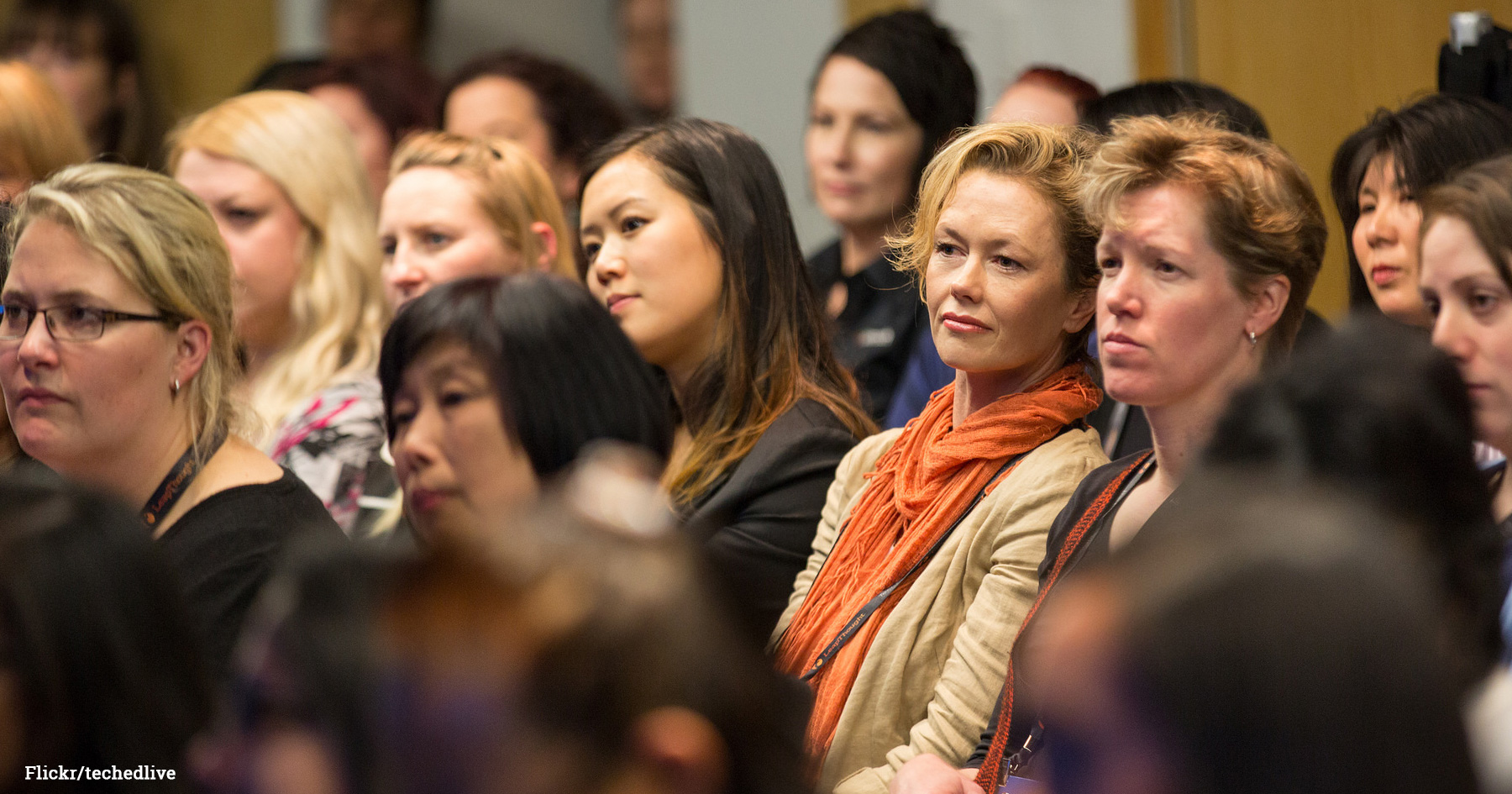This CEO Confirmed Your Worst Nightmares About What Employers Really Think of You

By:
Early Tuesday morning, 22-year-old front end developer Amilia St. John published a Medium post skewering her tech mogul dad, WildTangent Inc. founder Alex St. John, for his "sexist, ableist, and racist rants" about the industry.
Amilia's Medium post, which was picked up by Wired, was in response to an op-ed her father published last week on VentureBeat. The op-ed bemoaned a group he described as "wage slaves" — ungrateful low-level tech employees who identify as victims.
She interpreted her father's perspective as particularly tone-deaf to the experiences of women in tech, and she pointed out that her father had published even more inflammatory remarks about gender and race on his personal blog. Amilia quoted a passage from the blog, which has since been taken down:
“Why do young white males tend to be the ones who pick up computers, teach themselves to code, start businesses in their basements with their friends and get rich? It’s an obvious opportunity to everybody isn’t it? If you are a different race, gender, or religion… what’s your excuse? I know of very very few successful bootstrapped tech companies founded by women or blacks.”
"I am 22, a female, white and currently moonlighting as a 'wage slave.' (as my dad would call it)," Amilia wrote. She went on to describe the difficulties of working in tech as a women, which she has experienced firsthand.
"Women in technology is personal to me, and I feel it is my responsibility to share my experiences with other women," she wrote. "In a world where so many women are finally gaining the opportunity for a voice, the tech industry is quiet. And what my father seems to so fundamentally misunderstand is that this is NOT, as he insinuates, a result of women 'claiming victimhood.'”
It gets worse.
After the VentureBeat op-ed was published, outraged readers dug up a PowerPoint presentation reportedly assembled by Alex St. John that communicates even more troubling views about women.
The slideshow advises recruiters to lure "wives and girlfriends" to take positions at companies to avoid losing valuable male employees, but emphasizes that these women are better suited for management positions than engineering ones.
A slide entitled "The NOT Male Engineers" includes a photograph of Amilia's face, and explains that women are often promoted out of engineering and into management positions because "stronger social skills make them better managers."
"There may actually be more female engineers but nobody can identify them…" the presentation adds.
On Medium, Amilia voiced her frustration these stereotypes. "After entering the field, women begin to get weeded out of engineering roles in favor of client-facing roles that 'perfectly suit' their 'stronger social skills,'” she wrote. She expanded:
"Widely held beliefs like these are playing a huge role in hindering women from continuing as engineers. While many of these 'more social' roles may be high paying, they remove truly technical women from technical jobs, furthering the imbalance. This directly impacts women later in their careers as it has been shown that technical positions are more likely to lead to senior roles in the industry. My Father’s suggestion to continue the practice of 'promoting' women out of engineering roles will only further reinforce gender norms in the workplace and ultimately harm the supply of senior female technical executives."
He also used ableist slurs.
The slideshow repeatedly invokes the development disorder Asperger's syndrome to express the value of a perceived type of employee. It instructs recruiters to "be on the look out for the holy-grail… the undiscovered Asperger's engineer."
"They work like machines, don’t engage in politics, don’t develop attitudes and never change jobs," the slide reads.
According to the WildTangent Inc. founder, these individuals can be identified by their lack of "social skills" and inability to make eye contact.
Sexism in tech.
If women in the tech industry do identify as "victims," it's for good reason. As ATTN: has previously reported, approximately 90 percent of women in tech have witnessed workplace sexism, according to the 2015 survey "Elephant in the Valley."
 Flickr/techedlive - flic.kr
Flickr/techedlive - flic.kr
On VentureBeat, St. John argued that employees essentially need to suck it up and appreciate what he described as "one of the most remarkable and privileged careers in the world." But not everyone who works in technology is treated equally, or given the same opportunities and privileges.
The "Elephant in the Valley" survey also reported that "nearly half of the respondents have been asked to take care of administrative duties, such as note-taking and lunch ordering."
These women also reported facing egregious sexual harassment.
"After a colleague made a (VERY unwanted) advance, I did not complain to anyone, but I ensured that I never was alone with him outside an office setting," one woman alleged in the report. "Not complaining was a mistake. The colleague later criticized me in a review as 'not putting in enough hours.' If I'd filed a complaint, his spiteful slap back at me would have been put in context. But I wouldn't have known whom to complain to or how."
In 2015, the Los Angeles Times reported that men outnumbered women in tech 7 to 3, and were treated very differently than their male counterparts. They were frequently evaluated based on their personalities, rather than the quality of their work, according to the report.
You can read Amilia St. John's full post on Medium.
